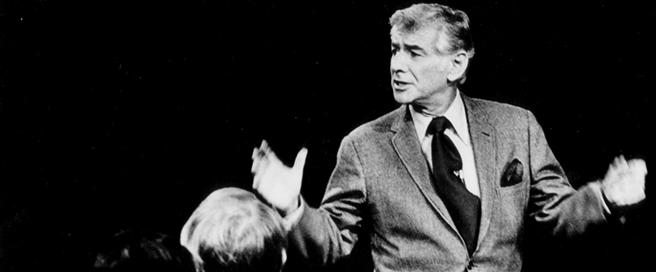Music for Meditation: Charles Ives and Bernstein

July 11th, 2020
By Mark George, President and CEO
In some ways, Charles Ives is the template for a composer in America. Born in 1874, he studied Western classical music at Yale then promptly abandoned it. He was more interested in creating a distinctly American form of art, which manifested itself in his rugged individualism, bold musical concepts, and use of American source materials, such as folk songs, hymn tunes, spirituals, and patriotic songs. Ives had an “open ear” for both musical and non-musical sounds. In addition to “quoting” sections of the aforementioned tunes, he sometimes tried to realistically reproduce sounds such as church bells, a kind of musical onomatopoeia. I have always been struck with the extra-musical concepts Ives used to create some of his compositions. One of his best known compositions is The Unanswered Question. I have wavered over time between considering the work profound or simple-minded. I now believe it is quite profound, simple but not simple-minded.
The piece has three distinct elements, represented by a string section, woodwind quartet, and solo trumpet. The “question” is, “Why do we exist?” which is repeated by the trumpet seven times over the course of the work. The strings represent the infinity of time or as Ives once write, “The silence of the Druids”. The woodwinds try to “answer” the question six times, at first with calm assurance but then with increasing incomprehensibility and fighting amongst themselves. That’s it, the stillness of time, a profound question, and ultimately, humankind’s inability to answer it. I chose a recording by the New York Philharmonic, conducted by Leonard Bernstein. The piece is approximately six minutes in length.
The Unanswered Question (1908, revised 1930-35) Charles Ives (1874-1954)
New York Philharmonic, Leonard Bernstein conductor
The son of an abolitionist, Union Army bandmaster, Charles Edward Ives was born in Danbury, Connecticut. He attended Yale University, studied music, played varsity baseball and football, and received a degree in 1898. Though he was a prolific composer, most of his works remained in his desk drawer until the final decades of his life. He formed an insurance agency, Ives & Co., for which he worked until retirement.
Leonard Bernstein (1918-1990) was a celebrated American conductor, composer, pianist and author. His career was stunningly diverse. He served as Music Director of the New York Philharmonic, delivered acclaimed lectures on music at Yale and on television, composed dozens of pieces for orchestra, piano, chorale, and musical theater, including West Side Story. Bernstein was also a political activist, associated with a variety of causes, including wealth inequality, nuclear disarmament, and legal defense of members of the Black Panther Party.
